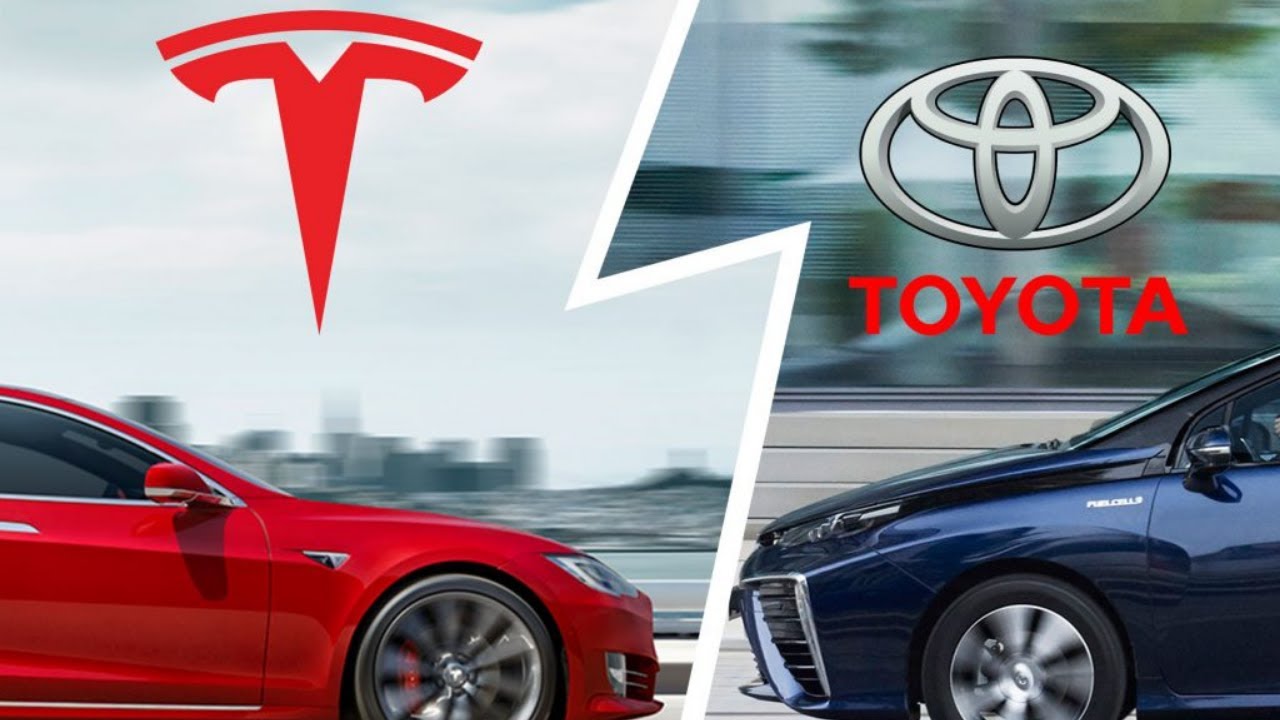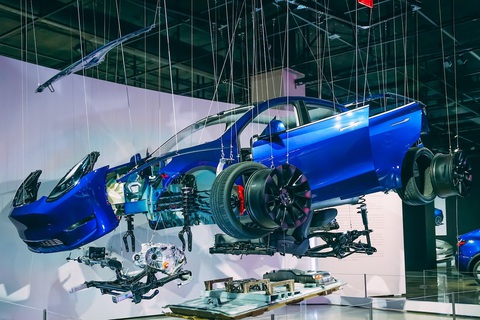 AUTOMOTIVE REVOLUTION: How Toyota Is Beating Tesla at Its Own Game
AUTOMOTIVE REVOLUTION: How Toyota Is Beating Tesla at Its Own Game
While the world marveled at Tesla’s flashy electric cars and the media endlessly praised Elon Musk’s rockets, robots, and bold declarations, another company—quieter, more methodical—was preparing its counterattack. That company is Toyota. And its weapon? A next-generation hybrid engine, unassuming at first glance, but powerful enough to reshape the future of global mobility.

A Bold Bet Against the Tide
As the entire auto industry seemed to rush headlong into full electrification, Toyota made a surprising and controversial statement: The world is not ready for a fully electric transition. Many questioned this stance. Why would the most respected carmaker in terms of reliability and technological innovation hesitate to go all in on EVs? The answer is simple: it wasn’t hesitation—it was strategy.

A Pragmatic Alternative

Contrary to popular belief, Toyota wasn’t falling behind. It was simply taking a different path—one grounded in realism and global accessibility. While Tesla went all-in on fully electric vehicles, Toyota was investing heavily in the next generation of hybrid engines: more efficient, less dependent on charging infrastructure, and ideal for extreme climates and rough terrains.
In regions where charging stations are a luxury, Toyota wasn’t just selling cars—it was delivering reliable, immediate mobility. While Elon Musk was dreaming of the future, Toyota was solving the problems of the present.
Tesla: A Dream, But at What Cost?
Tesla has succeeded in turning electric cars into luxurious tech products—with giant touchscreens, over-the-air updates, and self-driving features. But these marvels come at a steep cost—financially and logistically. Long charging times, range anxiety in cold weather, and underdeveloped infrastructure in large parts of the world.
By contrast, Toyota offers robust, affordable hybrid vehicles that meet the real-world needs of millions of drivers. Cars that don’t require special plugs or drastic lifestyle changes, while still cutting fuel consumption and emissions.

A Rational Choice for Millions of Drivers
Take India, for example. A hybrid Toyota SUV there costs around $18,000–$20,000. A Tesla Model 3? Typically over $35,000—before taxes and import duties. For the middle class, the decision is clear: a reliable, fuel-efficient hybrid or an expensive Tesla dependent on non-existent infrastructure.
Tesla’s Silent Retaliation?
Faced with Toyota’s quiet but steady momentum, Tesla is starting to waver. Internal sources report that the company is now researching hybrid systems—a surprising turn for a brand that once scoffed at the technology. Tesla is even rumored to be reverse-engineering Toyota’s hybrid components behind closed doors.
Toyota Is Already Building What Comes Next
![]()
And yet, hybrid isn’t Toyota’s endgame. Alongside it, the Japanese giant is pouring investment into two key future technologies:
-
Solid-state batteries, which promise greater range, faster charging, and improved safety. Expected launch: 2027.
-
Hydrogen fuel cells, ideal for heavy-duty vehicles, offering quick refueling and zero emissions—just water vapor.
Toyota isn’t just building cars—it’s building ecosystems. While others mark milestones, Toyota is paving the road ahead.
The Bottom Line: A Battle of Visions
This is no longer just a brand rivalry—it’s a clash of philosophies.
Tesla says: “Welcome to the future.”
Toyota answers: “But what if we fix today first?”
And slowly but surely, consumers across the globe are starting to agree with Toyota.





